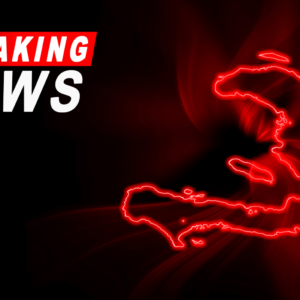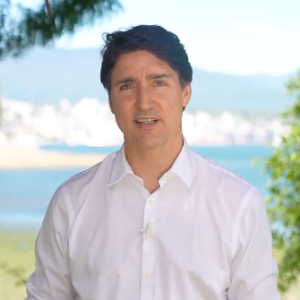President William Ruto has been forced to abandon the controversial Finance Bill 2024. MP Rigathi Gachagua has demanded that the President sack the head of the National Intelligence Service (NIS), Noordin Haji.
William Ruto finds himself at the heart of a complex political dilemma, facing a national youth-led revolt, fluctuating support in the Mount Kenya region, and an internal rebellion initiated by his vice-president, Rigathi Gachagua.
The President must also juggle a budget deficit of 303 billion shillings, under pressure and strict conditions from the International Monetary Fund (IMF) which demands that his administration, in power for two years, increase taxes despite protests against these measures additional fundraising.
Its difficulties have been compounded by the arrogant and ostentatious behavior of senior officials and close allies, who continue to show contempt for the voters they counted on to come to power in the August 9, 2022 elections.
The President was forced to abandon the controversial 2024 Finance Bill following several days of deadly protests, although the youth have not yet been appeased. This amorphous group of Generation Z has since made new demands of the President, including the removal of corrupt officials within his government.
Some individuals in key positions around the President have been implicated in major acts of corruption in the past, while others have had their corruption cases dropped under questionable circumstances, indicating a lack of commitment by the Kenya Kwanza administration to combating this scourge.
MP Gachagua also demanded that the President sack the director of the National Intelligence Service (NIS), Noordin Haji, accusing him of failing to inform the President of the extent of the protests.
“If the National Intelligence Service had briefed the President two months ago on public perception about the 2024 Finance Bill, many Kenyans would not have lost their lives, property would not have been destroyed, and there would not have been chaos. But they failed in their duty,” Mr Gachagua said.
How the president responds to these demands will have major political ramifications leading up to the 2027 general election and will influence his chances of re-election.
The youth leading the current revolt represent the largest voting bloc for President Ruto, after he successfully weaved a narrative pitting the working poor against dynasties, promising the poor majority fair opportunities in jobs and opportunities. businesses.
Only the well-connected political elites seem to have benefited since President Ruto took office.
“If the Gen Z movement succeeds in organizing young, ambitious candidates for local, regional and national office from the grassroots, Ruto will only be one-term president and career politicians will be driven out of their comfortable fiefdoms,” says academic Professor David Monda.
“Ruto’s success in his relationship with the United States is one of the contributing factors to his domestic unpopularity. The strict austerity measures imposed by the IMF have forced the Ruto government to raise revenue through higher taxes to repay the growing debt. This is supposed to enable the government to borrow more from the IMF,” he observes.
Mr Gachagua admitted that the ruling party has lost popularity among Kenyans for failing to listen to their demands. He openly criticised the government, particularly in the densely populated Mount Kenya region which largely voted for the current regime.
Mr Gachagua has openly complained of an attempt at marginalisation despite his contribution to Kenya Kwanza’s victory in the presidential election, with his allies even threatening to lead the region away from the President.
He began mobilizing the region against the Kenya Kwanza administration by denouncing what he called mistreatment of voters.
He has stirred up emotions by using recent demolitions in Nairobi, which he claims targeted a specific community.
Dr Ruto’s victory was ensured by his home stronghold of the Rift Valley and Mount Kenya. If the Deputy President manages to consolidate the region away from Dr Ruto, he will have to go back to the drawing board to form a new alliance.
“We were elected recently as a people’s government. How did we get here? When did the rain start beating us?” Mr Gachagua asked during an intervention in Mombasa.
“President William Ruto and I were the darlings of the Kenyan people because we listened to them, because we engaged them. Our President’s decision this evening to withdraw the Finance Bill after listening to the people of Kenya marks a new beginning that should nurture the culture of consultation and engagement,” he said.
Professor Macharia Munene, a political analyst and academic, believes that President Ruto has failed to deliver on his promises made during the last election campaign. He says young people had high expectations of his government.
“Confidence in his leadership eroded after their expectations were not met. Young people are frustrated. Their parents are too,” emphasizes Professor Munene.
But ODM MP Caroli Omondi, who has declared his support for President Ruto, says the protests are not due to the head of state’s failure to reduce the cost of living.
He says young people are responding to years of political deception. He believes it is time to have a national dialogue to listen to them.
“I firmly believe that Kenya’s current economic challenges will not be solved through political confrontation and other forms of political bias. It is time for a national economic dialogue to find solutions to our collective economic challenges. Let our political competition be at the level of the confrontation of economic ideas,” Mr. Omondi said.
National Assembly Majority Leader Opiyo Wandayi says whoever is in power should be concerned about large youth-led protests. He says that apart from the young people who are the face of the protest, many other groups are supporting the demonstrations.
“The underlying problems are so deep-rooted that they affect many more groups than just the youth. The youth might be the face, but others like civil societies, the church and others seem to follow the same script,” Mr Wandayi said.
Kimilili MP Didmus Barasa said the Kenya Kwanza administration had many options to engage the youth.
He said since young people have no structure or officials, the government could consider creating a website for them to submit their concerns before they are taken into account.
He also allayed fears that Mount Kenya might be moving away from the President. He said the president was reaching people directly without going through political barons. He added that one person’s discontent does not represent the feelings of the entire region.
The day Dr Ruto backtracked by abandoning the 2024 Finance Bill, he proposed austerity measures and budget cuts to offset the projected deficit.
There is a widespread feeling that the country has a spending problem. Part of the revenue collected is wasted on corruption and used to finance luxury and extravagance.
“I am immediately calling for further austerity measures to reduce spending, starting with the Executive Office of the President and extending to the entire executive branch,” the President said.
“I request that operational expenditures in the Presidency be reduced by eliminating the allocations for confidential voting, reducing the budget for travel, hospitality, vehicle purchases, renovations and other expenses.”
He also called on Parliament, the Judiciary and county governments to make budget cuts and austerity. Past statements on this subject have generally not achieved much, those responsible continue to display opulence and extravagance.
The IMF has been pushing Dr Ruto to cut wasteful spending in addition to raising taxes to fund his operations and repay existing loans. The IMF had anticipated the emergence of street protests against the tax measures, but urged the government to remain firm on the new fund-raising measures.
Professor Monda observes that “Kenya’s subjugation to the IMF and US hegemony increases citizens’ frustration as Kenya loses its sovereignty.”
“Citizens feel that decisions affecting them are being made by unelected neoliberal economists in Washington DC rather than elected officials in Nairobi. In other words, Kenya has become a neocolony of the United States,” he says.
There is a growing perception that the President and his top officials are arrogant, arrogant and do not hesitate to display conspicuous consumption through their clothing and vehicles, often contributing large sums at fundraisers.
Some of them flaunt opulence and extravagance – in the form of expensive designer clothes and accessories such as watches and belts valued at millions of shillings – while complaining about the burden of debt.
Ruto’s Catch-22: Caught between Gen Zs, Gachagua’s NIS demand and IMF pressure | Nation
Similar articles






